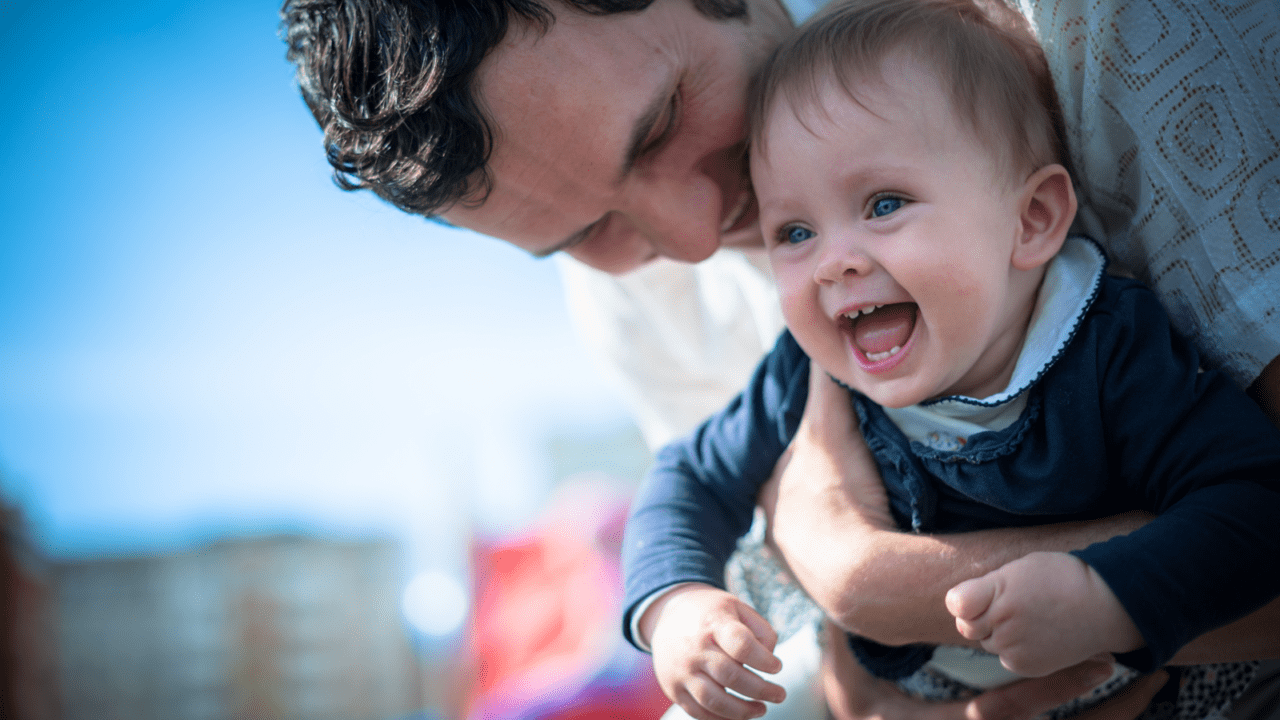Your child is amazing! Every day brings something new to celebrate. From his first goofy grin to his first word. From her first “no hands” steps to her first full-out run.
Babies are great at practicing new skills as they learn to walk and talk. Babies are also great at bouncing back from initial failures to try again: Imagine falling on your bottom and then standing right up again to try walking one more time! This resilience, or willingness to try again, is a key skill that parents can nurture as children grow. It turns out that some ways of offering praise are better than others when it comes to developing resilience.
Here’s how.
Skip the labels, even if they show you’re proud.
It’s probably obvious that it’s harmful to describe kids in a negative way, such as “lazy” or “not good at math.” But even positive labels—like “so smart”—can limit a child’s idea of who they are and who they can become. The research shows that when a child is told “You’re smart!” they understand this as a quality they either have or don’t have. Then, when they encounter a challenge (like learning to read or mastering fractions) they tend to give up more quickly. They feel that they just aren’t “smart” in that area.
Kids (adults, too!) are more willing to keep trying when they understand that talents and abilities can be developed through hard work. When we teach that struggle is a natural part of learning, we prepare kids to bounce back from failures (just like little ones determined to walk). How do we do this? Read on.
Praise the process, not the outcome.
Focusing on the skills and effort that children use during a task (whether or not they are successful) helps them learn how to learn. Check out these suggestions for praising the process.
| What Happened | How to Celebrate |
|---|---|
| Your 12-month-old climbed up the front steps for the fifth time in a row. | That was tough, but you kept at it and now you’re at the top! |
| Your 2-year-old built an amazing block tower. | You built a strong base and now your tower is so tall! |
| Your 3-year-old just finished a colorful drawing. He’s very proud as he shows you his picture. | I saw you drawing so carefully. Tell me what you did to make your picture. |
Teach that mistakes are part of learning.
Nobody’s perfect, and the road to becoming a big kid is paved with first tries that miss the mark. The same is true for adults. Be a role model for resilience. Avoid blaming yourself when you make a mistake (I’m so stupid! Why can’t I get this wifi to connect!). Instead, talk out loud as you work to solve a problem. Model the calm, resilient behavior you want your child to learn: I’m frustrated because I can’t get the wifi to connect. Let me take a break, and then I’ll try again.
Encourage age-appropriate resilience.
Your responses shape how your child sees himself and the world around him. Here are some simple strategies that teach children they are strong, capable, and resilient.
| What’s happening | How to encourage resilience |
|---|---|
| Your child really wants to put her own boot on. She’s having trouble and is getting frustrated. | Provide “just enough” help. DON’T leap in to put the boot on. DO ask if she would like some help. If she says yes, show her how to line the boot up with her foot. Move a chair close by so she can balance. Then let her try again. |
| Your child is learning to pour milk into his own cup. Milk has spilled all over the floor. | Your child is taking his cues from you. Gasping, yelling and eye-rolling can make children reluctant to try hard tasks again. Aim for kindness and connection: It’s ok. Let’s get a towel and you can help me clean up. |
| Your child’s block tower keeps falling, over and over again. She is getting upset and overwhelmed, and throws a block. | Suggest taking a break to help your child calm down a bit—snuggling, deep breathing, or even looking out the window can help. Then share an observation: I noticed that the bottom blocks were a little wobbly. I wonder what would happen if we used the biggest blocks on the bottom. Let your child take the lead on what to do next. |
Your child will not be little forever. One day, he will be able to finish a puzzle, pour milk, and even get dressed by himself! But the encouragement you provide today builds the learning habits that last a lifetime.






